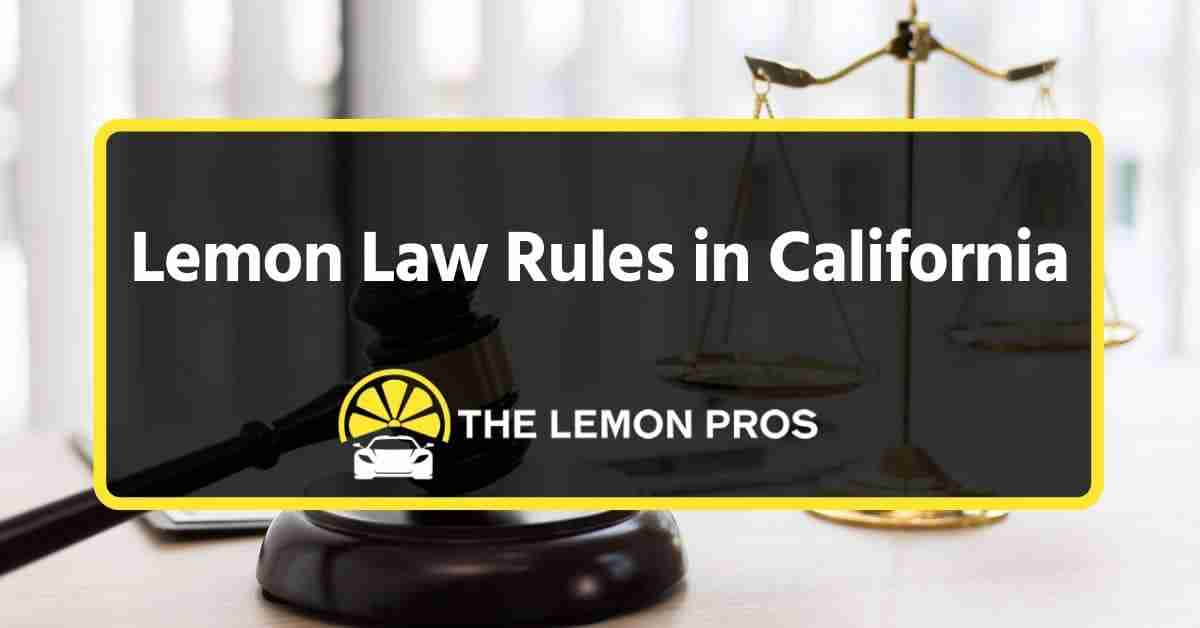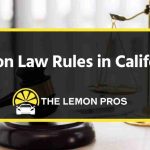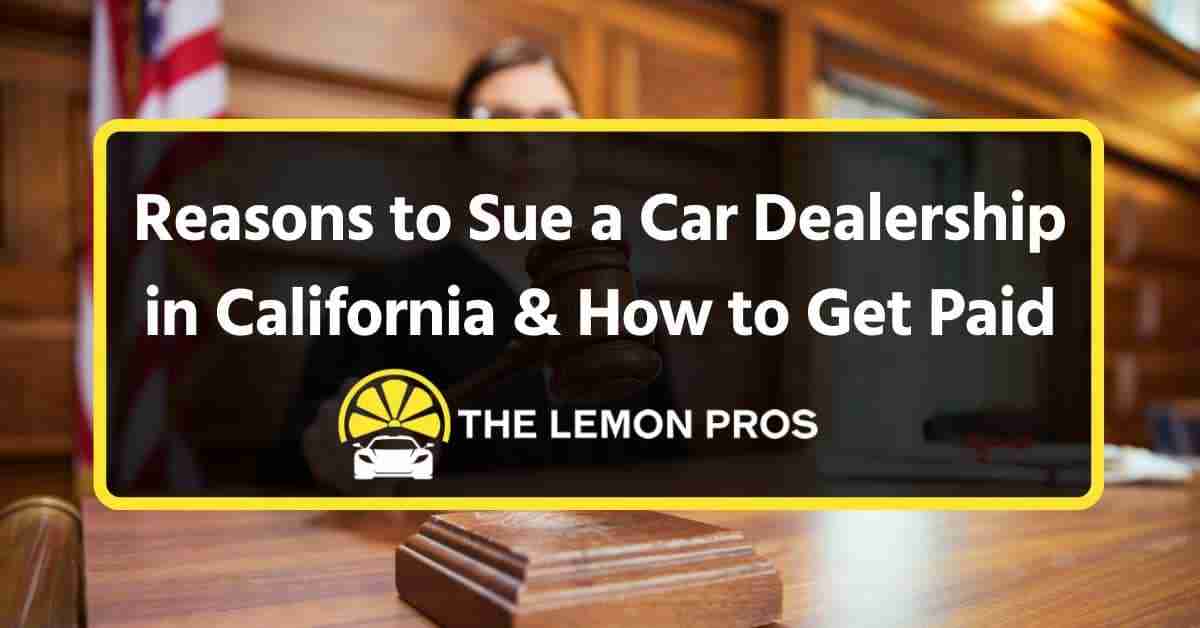
19 Reasons to Sue a Car Dealership in California & How to Get Paid!
In California, consumers are protected from significant defects on new and some used cars under Lemon Law. If a vehicle can’t be repaired in a reasonable number of attempts, you may be able to take legal action. You may even be able to sue a car dealership if there have been Lemon law violations, a breach of contract, fraudulent practices, or other infractions.
Feeling stuck with a lemon? Don’t wait any longer! Our experienced California Lemon Law Attorneys have won thousands of cases and know how to protect consumers. If you’ve been mistreated by a dealership or haven’t gotten the results you expected, you may be due a reimbursement. Contact us today for a free Lemon Law Consultation and let us get you the compensation you deserve!
Knowledge is empowering, so we want you to know your rights, understand the reasons to sue a car dealership, and the process that follows should you choose this option. We also discuss why legal representation is a must if you want the maximum reimbursement and show you how to sue a car dealership in California.
Table Of Contents
- Top 19 Reasons to Sue a Car Dealer and How to Win Your Claim
- Reason #1 – California Lemon Law
- Reason #2 – Breach of Contract
- Reason #3 – Negligence
- Reason #4 – Fraud/Deception
- Reason #5 – Consumer Protection Violations
- Reason #6 – Warranty Issues
- Reason #7 – Return Refusal
- Reason #8 – Predatory Lending Practices
- Reason #9 – Failure to Deliver Title/Registration
- Reason #10 – Violation of Lemon Buyback Disclosures
- Reason #11 – Violation of Privacy Laws
- Reason #12 - Bait-and-Switch Tactics
- Reason 13 - Selling a Salvaged or Rebuilt Vehicle Without Disclosure
- Reason 14 - Odometer Tampering
- Reason 15 - Selling a Vehicle Without Proper Inspection
- Reason 16 - Misrepresentation of Vehicle Features
- Reason 17 - Unlawful Repossession
- Reason 18 - Hidden Fees in the Purchase Agreement
- Reason 19 - Pressure to Waive Legal Rights
- Can I Sue a Dealership for Emotional Distress?
- How to Prepare to Sue a Car Dealership
- Suing Car Dealerships in California - The Legal Process
- Is It Worth Suing a Car Dealership?
- Alternatives to Lemon Lawsuits in California
- Your Rights as a Vehicle Owner Under California Law
- Hire An Attorney To Help You Sue
Top 19 Reasons to Sue a Car Dealer and How to Win Your Claim
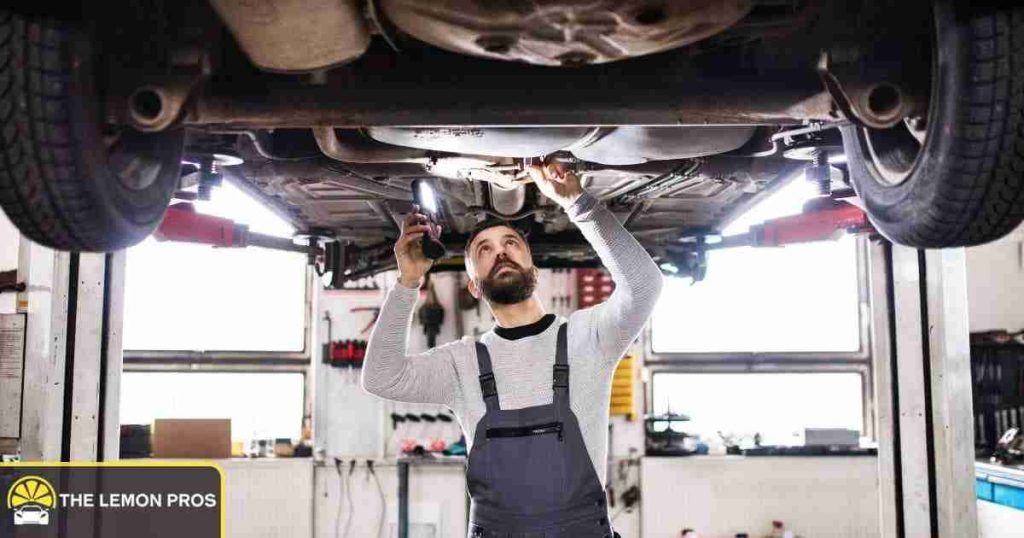
Car buyers have more protection than they may know. The state and federal governments have put many regulations in place to ensure you aren’t taken advantage of, yet many people don’t realize that. Here are 11 reasons why you may need to sue a car dealer and what you may be entitled to under California Law.
Reason #1 – California Lemon Law
Starting with Lemon law, if you are sold a vehicle by a dealership with warranty coverage and it experiences unrepairable defects, you may be due a replacement or compensation. The claims for the defective vehicles must occur within 18 months of delivery and still be under warranty to qualify. If the dealership can't fix your car and has had the vehicle for more than thirty days to repair the same issue, it’s time to get a lawyer involved.
Once the manufacturer is contacted by your legal team, they may offer to buy back the vehicle. Otherwise, a fraud claim and litigation may need to occur for you to get compensation.
Reason #2 – Breach of Contract
If the car dealership doesn’t fulfill what’s outlined in the contract, you have grounds to go to small claims court. Suing a car dealership for breach of contract may include failing to disclose valuable information, misrepresenting the terms, and unfulfilled promises.
In California, the maximum compensation for a regular claim is $10,000. This maximum covers breach of contract, personal injury, property damage, and other civil disputes.
Reason #3 – Negligence
If the dealership is negligent, you can sue them. Negligence often shows up in the service department when the technicians don’t properly repair the vehicle or maintain it the way it was supposed to be, leading to damage. By suing a car dealership for negligence, you may be entitled to the out of pocket repair costs and other incidentals you had to pay.
Reason #4 – Fraud/Deception
If the dealership hid defects or damage, misrepresented the vehicle’s history, or made false claims about financing terms, you may be due a refund because of fraud and deception. Getting tricked by a legitimate dealership should never be a concern, but it happens more often than expected.
Depending on the deception, you may be due hefty compensation. Whatever the dealer’s intentions were, you have the right to file a lawsuit against the car dealership.
Reason #5 – Consumer Protection Violations
State and federal regulations protect you from bad business practices. If you were deceived about the purchase price, sales tax, or other fees, you may be due the money you spent and any legal expenses.
Reason #6 – Warranty Issues
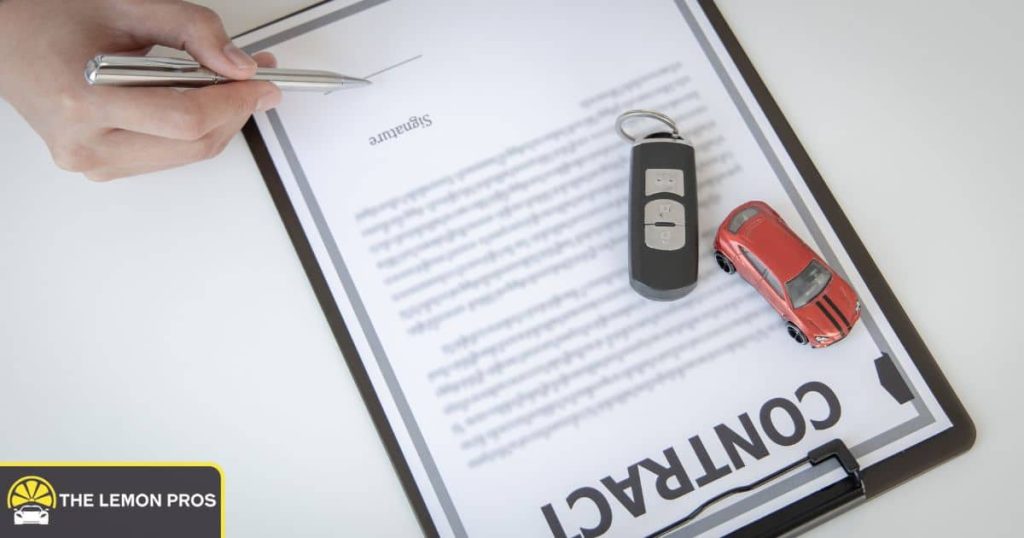
If you bought a vehicle with a warranty but can’t get the car fixed or have the technicians run the repairs through the warranty, you may be due compensation. Your expenses can be recovered through a lawsuit.
You may receive reimbursement for repairs you paid for out of pocket. Otherwise, if you are driving a lemon car that can’t be fixed, you could receive a replacement vehicle or the money back.
Reason #7 – Return Refusal
Under California Law, there’s a cooling-off period that gives you time to change your mind. If the dealer refuses to accept the return, you may be able to sue.
Ideally, you would get to return the vehicle and get your money back for any expenses.
Reason #8 – Predatory Lending Practices
If the dealership misleads you and charges excessive interest rates, gives you an inaccurate down payment amount, tricks you with yo-yo financing or imposes undisclosed fees, you may be able to take legal action. Car dealers aren’t permitted to engage in predatory lending practices with the goal of exploiting consumers. Based on the Truth in Lending Act (TILA), lenders and dealers must also provide you with certain disclosures before the sale.
However, you don’t need to worry. With an experienced Lemon law attorney, you can get out of these agreements.
Reason #9 – Failure to Deliver Title/Registration
Based on California Vehicle Code Section 5900, the dealership has thirty days to deliver the used or new car title to you. If you haven’t received the car documentation in a reasonable time, it’s appropriate to take action.
For starters, you want to inquire about the delay and request an expedited delivery of the car title. If the dealership doesn’t comply, legal action may be necessary, along with filing a complaint at the California Department of Motor Vehicles (state's DMV).
Reason #10 – Violation of Lemon Buyback Disclosures
When a vehicle is bought back by the manufacturer as a lemon, this information must be disclosed to future buyers during future car purchases. If the dealer fails and you purchase a car and aren’t aware of its history, you have legal standing to sue. After all, you don’t want to be stuck with a vehicle that has defects.
With the help of your Lemon law lawyer, you may be offered a replacement vehicle or given compensation for the defects.
Reason #11 – Violation of Privacy Laws
When you visit the dealership, your personal information is expected to be protected. A lot of sensitive information is stored with the dealership, including your social security number, birth date, and address. If this information is misused or shared, you have a legal right to sue.
Depending on what information was shared and the outcome of the violation, you may be due a substantial amount of money.
Reason #12 - Bait-and-Switch Tactics

The car dealership may advertise the vehicle at an unbelievable price and then claim it has already been sold when you come to look at it. In exchange, they offer you a more expensive option to look at instead. This is known as bait and switch and it's considered an illegal practice in California.
Reason 13 - Selling a Salvaged or Rebuilt Vehicle Without Disclosure
The car dealership is responsible for telling you the title status of the vehicle before you purchase it. It's considered auto fraud if dealerships fail to disclose that the title is salvage or rebuilt - indicating that there could be problems with the mechanical integrity.
Reason 14 - Odometer Tampering
A used car dealership may attempt to roll back the odometer to make the car look less worn than it is. This practice is a federal law violation known as odometer tampering. To protect yourself from this practice, watch for wear and tear that doesn't match the advertised mileage. You can also look at inconsistencies in the maintenance records and ask for a vehicle history report that would have previously recorded mileage on it.
Reason 15 - Selling a Vehicle Without Proper Inspection
While you always have the right to an independent inspection of a vehicle you plan to buy, the car dealership should also have looked over the car carefully. It's a fraudulent misrepresentation to claim that the vehicle has been inspected when it hasn't, leading you to believe that everything is in good working order.
Reason 16 - Misrepresentation of Vehicle Features
Just as it would be wrong for the car dealership to tell you the price is something other than what it is, it's also deceptive to sway your decision with features the car doesn't have. The state requires dealers to be honest about the features included with the car since it would be unlawful to do otherwise.
Reason 17 - Unlawful Repossession
State law requires dealerships to follow certain regulations during car repossession. If these laws aren't followed and your car has been illegally repossessed, you may be able to seek justice for the damages. It's important to discuss your legal options with a qualified attorney.
Reason 18 - Hidden Fees in the Purchase Agreement
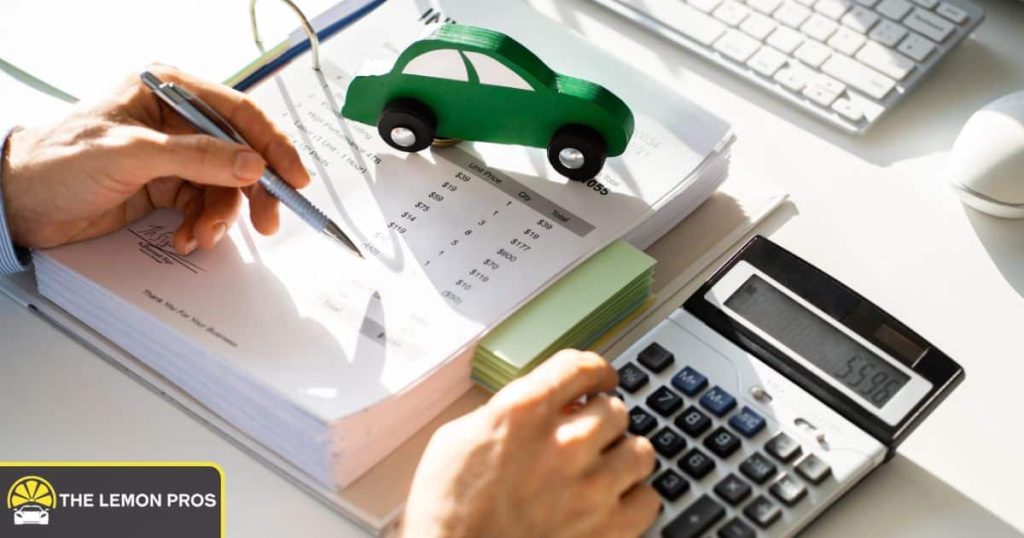
In the sales agreement, you should be able to understand everything that you are paying for. All of these terms should have been discussed in detail with you before the sale occurs. If you notice hidden fees or costs that were not disclosed, you may have the right to sue the dealership.
Reason 19 - Pressure to Waive Legal Rights
If the car dealership is doing something wrong, either with deceptive financing practices or high-pressure sales tactics that are unlawful, they may attempt to get you to waive any future legal rights. This practice is considered auto fraud and opens the door to being sued.
Thinking about filing a claim? Don’t navigate the process alone or you could miss out on valuable compensation. Contact our Lemon Law professionals today for a free consultation. Let’s discuss your options and take the next steps toward resolving your issue quickly.
Can I Sue a Dealership for Emotional Distress?
Yes, consumer protection laws allow you to sue the dealer for causing emotional distress, but the case can be tricky to prove. Emotional distress claims require evidence of harassment, intentional infliction or harm or fraud, and you must be able to prove that the dealership's behavior directly affected your suffering. To do so, you'll need medical records, witness testimony, therapy bills and other evidence that strengthens the case. Discussing these matters with an experienced attorney is the best way to handle the situation.
How to Prepare to Sue a Car Dealership

Before you file a lawsuit against a car dealership, there are some other steps to take. Start by gathering all of the relevant documents for the case. Your documentation should include the following:
- Sales contract
- Communication with the dealership (including the name of the person you spoke with, date, time, and what happened)
- All repair records
- Financing documents
The next step would be to try and resolve the problem with the dealership. For this step, it’s often best to work with a legal expert to show that you mean business. Otherwise, the dealership may simply dismiss your complaint. Cost shouldn’t be a deciding factor when looking for a lawyer to represent you.
Ultimately, the question of how much do Lemon law attorneys costcan’t be disregarded completely. All Lemon Law lawyers have their own attorney fees, but we don’t charge our clients unless they win. Even then, the manufacturer or dealership may be responsible for paying your fees. Get a free case evaluation to see what you may be entitled to.
If you believe the dealership has violated consumer protections, you should immediately file a complaint with the Better Business Bureau and the Department of Consumer Affairs. Depending on the situation, it may also be time to call the California Department of Motor Vehicles (DMV). The agency can help you file a complaint against new car dealerships and private sellers.
But, can you sue a private seller in California? In some cases, you may be able to take legal action. If the seller defrauded you or misrepresented the condition of the vehicle, there may be legal recourse. Our team of legal professionals can help you determine what steps to take. of the vehicle, there may be legal recourse. Our team of legal professionals can help you determine what steps to take.
Suing Car Dealerships in California - The Legal Process

If the issue can’t be resolved without legal action, it’s time to file a claim. Depending on the situation, you may need to file a small claims lawsuit or negligence case against the manufacturer. Because this could turn into a complex legal matter, you shouldn’t attempt to navigate the steps alone. From gathering the documentation and making sure all of the information is accounted for to communicating with the dealer, a qualified attorney is ready to help.
Each lawsuit is unique, so laying out the typical steps is difficult. Arbitration and mediation may be the best option for some cases, while others go right to court. Ideally, you would end up with a replacement vehicle or a buyback from the manufacturer.
Is It Worth Suing a Car Dealership?
If your case has strong evidence and you have the time for legal action, it's often wise to sue the dealership. Small claims court is one of the simplest options and is ideal for any minor disputes, but you may need to file a lawsuit in heftier matters. Consulting with an expert attorney can help you decide the best course of action.
Alternatives to Lemon Lawsuits in California

Going to court isn’t the only option. We have had a lot of success with out-of-court settlements. When a dealership and manufacturer hear that you have experienced lemon lawyers on your team, they don’t typically want to go through the hassle of paying your expenses. In that case, mediation and arbitration can bring about the desired results. Lawsuits aren’t the only option to follow through with. California’s Department of Consumer Affairs can also put pressure on the dealership if they’ve engaged in unfair business practices.
Because you don’t want to spend your time suing car dealerships, it’s best to learn from this experience and protect yourself. First, it’s important to vet reputable car dealerships that don’t have a history of scamming consumers. You also want to stay away from any vehicle with limited or no accident and maintenance history to look at, inconsistent information, or no vehicle identification number (VIN). If the dealership is putting too much pressure on you, trying to rush the sale, or refusing to let you test drive the vehicle, it’s time to take your business elsewhere.
Your Rights as a Vehicle Owner Under California Law

Under California Lemon Law, you have protection as a consumer who has purchased or leased a new vehicle from a car dealership. Based on consumer protection laws, if the vehicle has significant defects that affect its use, value, or safety, and these issues can’t be repaired within a reasonable time, you may be due a replacement or compensation. Under California Law, there are several warranties and guarantees to know about.
Express warranties: This guarantee is when the seller explicitly assures or promises the buyer about the vehicle’s performance, characteristics, or quality. Whether it is oral or written, it is a legally binding agreement.
Implied warranties: Nothing may be explicitly stated with an implied warranty, but the guarantee is presumed to exist because of the transaction’s nature. In other words, this warranty says that the vehicle is good for its intended use without any reason that would hinder it from fulfilling its purpose.
Manufacturer warranties: The factory warranty ensures that any defects will be covered by the automaker. It covers specific components and has an agreed-upon coverage timeframe (mileage or years).
There’s also a Used Car Rule, regulated by the Federal Trade Commission (FTC), known as the “Buyer’s Guide.” This federal regulation requires the car dealership to provide consumers with vital information about the used vehicle’s warranty coverage and condition.
Here’s how this legislation affects consumers.
- Dealerships must display a Buyer’s Guide on every vehicle that discloses whether there is a warranty or the car is being sold “as is.”
- When the Used Car Rule is violated, the California Department of Motor Vehicles (DMV) and other consumer protection agencies may enforce compliance. If needed, the FTC gets involved.
- Consumers then have legal recourse and can file complaints against the used car dealer.
The Used Car Rule is necessary for ensuring transparency, deterring deceptive practices, preventing auto dealer fraud, and providing essential information for shoppers looking for a quality vehicle from today’s many car dealerships.
Hire An Attorney To Help You Sue
As a consumer, several laws protect you from fraud and car defects. If your vehicle isn’t what you thought it was going to be or you have been scammed, it may be time to take legal action.
An experienced Lemon Car Lawyer in California knows how to get results. We’ve helped thousands of other clients get out of their lemon cars and can help you too. Get your free Lemon Law Consultation today to protect your rights.
Visit your experienced and skilled Lemon Law Attorneys in Los Angeles today!

